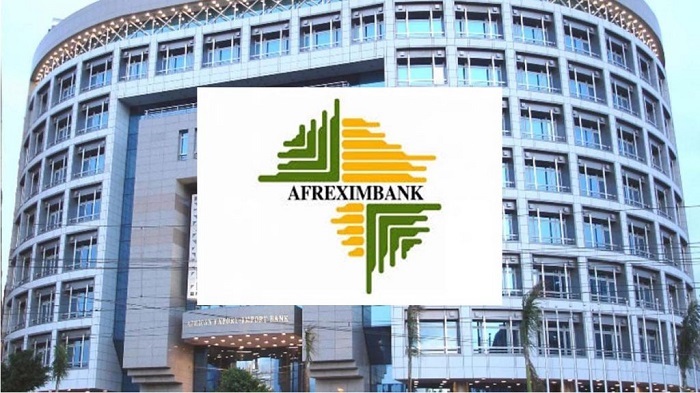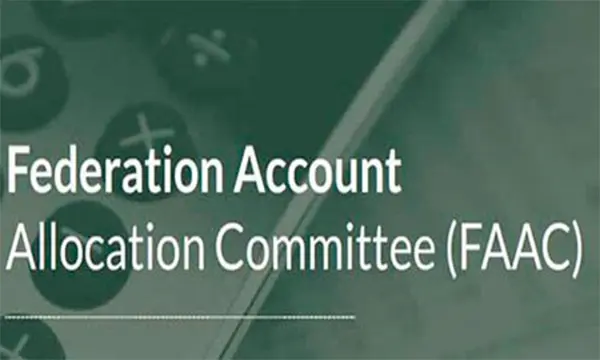Headlines
Afreximbank Invested Over $42bn in African Enterprises in Five Years

By Derrick Bangura
Between 2016 and 2020, the African Export-Import Bank (Afreximbank) invested more than $42 billion in support of African businesses, according to the Nigerian Content Development and Monitoring Board (NCDMB).
Professor Benedict Oramah, President of Afreximbank, stated that the continental multilateral institution was currently the largest lender to the multi-billion dollar 650,000 barrels per day Dangote Refinery, which is currently under construction in Lagos’ Lekki Free Trade Zone.
They spoke at a forum with the theme, “Evolving a Pan-African Strategy Towards Sustainable Funding of Africa Oil and Gas Projects,” targeted at oil and gas practitioners especially member nations of the African Petroleum Producers Organisation (APPO).
Speaking yesterday at the maiden edition of the African Local Content Investment Forum (ALCIF) in Lagos, Executive Secretary of NCDMB, Mr. Simbi Wabote, described Afreximbank as one bright spot in the continent mandated to finance and promote intra and extra-African trade.
Wabote recalled that Afreximbank signed a $1.04 billion facility with the Nigerian National Petroleum Company (NNPC) Limited to finance the exploration of petroleum during the second intra-Africa trade fair which held in Durban, South Africa, few days after the completion of Climate Change Conference (COP-26) in Glasgow, Scotland.
He said, “In respect of African institutions, one bright spot is the African Export-Import Bank (Afrexim Bank), a pan-African multilateral financial institution mandated to finance and promote intra-and extra-African trade based in Cairo, Egypt.
“It is very instructive that Afreximbank signed a $1.04 billion facility with the NNPC Limited to finance the exploration of petroleum during the second intra-Africa trade fair which held in Durban, South Africa, few days after the completion of COP-26 event in Glasgow.
“For a bank that disbursed more than $42 billion between 2016 and 2020 in support of African enterprises, there is no doubt that Afreximbank is an institution of note in consideration of the quest for funding hydrocarbon development projects in Africa.”
The executive secretary said African Development Bank (AfDB) made similar financial support to African businesses in line with the bank’s objective to spur sustainable economic development and social progress in member countries thus contributing to poverty reduction.
According to Wabote, AfDB has the African Development Fund (ADF), which became operational in 1974 and has cumulatively invested $45 billion over its 44 years of operation on the African continent.
Noting that the fund had not been used much in the hydrocarbon sector, he said there was opportunity to engage AfDB to utilise part of the fund for gas development, which could be of interest to its largely Western donor countries against the backdrop of disruption in gas supplies in Europe.
At country level, according to Wabote, Nigeria represents a bright spot in the provision of funds that can be sourced for the execution of oil and gas projects. He explained that the funds included the Nigerian Content Intervention Fund (NCIF) and other funds that could be sourced from Development Financial Institutions (DFIs), like the Bank of Industry (BOI), Nigerian Export-Import Bank (NEXIM Bank) ,and other special funds managed by the Central Bank of Nigeria (CBN).
He cited the NCDMB partnered with BOI to establish the $300 million NCI Fund and the NCDMB partnership with NEXIM bank to create a$50-million fund for Working Capital and for Women in Energy.
In the area of research and development, Wabote said the NCDMB had sponsored the patent for some inventions, and had commenced the process of commercialising those inventions.
He also said a $50-million Research and Development (R&D) Fund was also launched to enable research and development in the oil and gas industry.
Beyond the provision of intervention funds as loans to industry players, he maintained that the board had also entered into partnerships with project promoters in the hydrocarbon sector.
In the aspect of modular refineries, the executive secretary noted that NCDMB was serving as a catalyst in the development of four modular refineries with the 5,000bpd Waltersmith Modular Refinery already in operation.
He pointed out that the Africa Finance Corporation (AFC), played a role in seeing the project to fruition, listing the other three modular refineries under construction as the 2,500bpd Duport Modular Refinery, 2,000bpd Atlantic Refinery and the 12,000bpd Azikel Modular Refinery.
Wabote explained that the essence of the event was for stakeholders to develop a robust response to the push for Africa to abandon her hydrocarbon resources.
The forum, he further explained, was to highlight some of the bright spots of the business, both at the national and continental levels to attract or deploy funding to the oil and gas industry, and propose some ideas to enhance continental collaboration and global support for fossil fuels.
He explained, “Already, some European banks are pulling out of hydrocarbons development projects and most International Operating Companies are shying away from investments in hydrocarbon projects to avoid backlash from green energy activists.
“This unfolding scenario is of huge concern to African leaders and policy makers in the oil and gas industry. It is, therefore, critical that we explore the necessary steps required to address this funding and investment challenge so that our hydrocarbon resources are not abandoned below the surface, like many African countries, including Nigeria, abandoned their coal mines.
“It is a bit of a comfort that some African countries have made some in-roads in securing funding and investment for the development of hydrocarbon projects with strategic partnerships with countries that have not turned themselves to oil and gas adversaries such as China and India.
“Other African countries are also doing their bit to develop infrastructure and processing plants for the hydrocarbon value chain but there is need to do more.
“One of such bright spots is the 650,000bpd Dangote Refinery which is now mechanically complete. This investment represents a major testament of the emerging crop of bold and audacious African businessmen positioning themselves and the continent on the map of the required energy mix for mankind.”
He reiterated that there was a genuine battle for the soul of the hydrocarbon industry in Africa, adding that Africans must all rally to save the industry or stand by while the continent perishes right in front of our eyes.
In his remarks, Oramah, who was represented at the forum by the bank’s Director/Global Head, Advisory and Capital Markets, Mr. Ibrahim Sagna, said Afreximbank had invested a total of $4 billion as of the third quarter (Q1) 2020 to support businesses in Nigeria.
He said by Q3 2021, the number of funds invested in the country passed $5 billion, adding that in the last four months, the bank has supported the NNPC Limited with $1 billion.
Oramah stated, “By the third quarter of 2020, our total investment is about $4 billion. By the third quarter of last year, the number has passed $5 billion. Over the last four months, we’ve given $1 billion for NNPC.
“We signed $5 billion agreement with NNPC. We signed an MOU of $5 billion with UTM Offshore. Also, the BOI which was mentioned, we provided over €700 million bond for them last week.
“In a bid to mobilise global financing to Africa, we have also lent some of the largest syndications in the sector. In fact, about the largest refinery in the world, which is the Dangote Refinery, we are today, the largest lender to that facility.”
In his keynote address, the Minister of State for Petroleum Resources, Chief Timipre Sylva, who was represented at the occasion by Permanent Secretary in the ministry, Mr. Nasir Gwarzo, said Africa must address funding, technology and other limitations in the oil and gas industry in order to attain energy security and in-continent value addition.
Sylva listed some of the limitations as, “dearth of funds to finance its oil and gas sector projects; limitations in technology mastery to manage the oil and gas industry; high-end skills gap; inadequate energy infrastructure to sustain oil and gas industry operations; undeveloped internal market for hydrocarbon derivatives and overdependence on sale of crude oil for foreign exchange and budget financing.”
He said Africa’s energy transition should be anchored on maximising fossil fuels (gas) utilisation and investment in renewable energy projects.
With over 600 million people living without access to modern energy, the minister said Africa’s energy demand in 2035 would be 40 per cent higher than it is today, compared to 10 per cent higher for global energy demand. The minister said this growth would be driven by industrialisation, population and expansion in economic activities.
Headlines
Noble Ladies Champion Women’s Financial Independence at Grand Inauguration in Abuja

Women from diverse backgrounds across Nigeria and beyond gathered at the Art and Culture Auditorium, Abuja, for the inauguration and convention of the Noble Ladies Association. The event, led by the association’s Founder and “visionary and polished Queen Mother,” Mrs. Margaret Chigozie Mkpuma, was a colourful display of feminine elegance, empowerment, and ambition.
The highly anticipated gathering, attended by over 700 members and counting, reflected the association’s mission to help women realise their potential while shifting mindsets away from dependency and over-glamorization of the ‘white collar job.’ According to the group, progress can be better achieved through innovation and creativity. “When a woman is able to earn and blossom on her own she has no reason to look at herself as a second fiddle,” the association stated.
One of the association’s standout initiatives is its women-only investment platform, which currently offers a minimum entry of ₦100,000 with a return of ₦130,000 over 30 days—an interest rate of 30 percent. Some members invest as much as ₦1 million, enjoying the same return rate. Mrs. Mkpuma explained that the scheme focuses on women because “women bear the greater brunt of poverty” and the platform seeks “to offer equity in the absence of economic equality.”
Education is also central to the Noble Ladies’ mission, regardless of age. Their mantra, “start again from where you stopped,” encourages women to return to school or upgrade their skills at any stage in life. The association believes that financial stability is vital in protecting women from cultural practices that dispossess widows of their late husbands’ assets, while also enabling them to raise morally and socially grounded families.
Founded on the vision of enhancing women’s skills and achieving financial stability, the association rests on a value system that discourages pity and promotes purpose. “You have a purpose and you build on that purpose to achieve great potentials and emancipation,” Mrs. Mkpuma said.
A criminologist by training and entrepreneur by practice, she cautions against idleness while waiting for formal employment. “There are billions in the informal and non-formal sectors waiting to be made,” she said, rejecting the “new normal of begging” and urging people to “be more introspective to find their purpose in life and hold on to it.”
Mrs. Mkpuma’s management style keeps members actively engaged, focusing on vocational skills and training to prepare them for competitive markets. She is exploring “innovative integration of uncommon technologies” and is already in talks with international franchises to invest in Nigeria, with Noble Ladies as first beneficiaries.
The association’s core values include mutual respect, innovation, forward-thinking, equal opportunity, and financial emancipation. With plans underway to establish a secretariat in the heart of Abuja, the group aims to expand its impact.
The event drew high-profile guests, including former Inspector General of Police, Mike Okiro, and a host of VIPs, marking a significant milestone in the association’s drive for women’s empowerment.
Headlines
NEPZA, FCT agree to create world-class FTZ environment

The Nigeria Export Processing Zones Authority (NEPZA) has stepped in to resolve the dispute between the Federal Capital Territory Administration and the Abuja Technology Village (ATV), a licensed Free Trade Zone, over the potential revocation of the zone’s land title.
Dr. Olufemi Ogunyemi, the Managing Director of NEPZA, urged ATV operators and investors to withdraw the lawsuit filed against the FCT administration immediately to facilitate a roundtable negotiation.
Dr. Ogunyemi delivered the charge during a courtesy visit to the Minister of the Federal Capital Territory, Barrister Nyesom Wike, on Thursday in Abuja.
You will recall that the ATV operators responded to the revocation notice issued by the FCT administration with a lawsuit.
Dr. Ogunyemi stated that the continued support for the growth of the Free Trade Zones Scheme would benefit the nation’s economy and the FCT’s development, emphasizing that the FCT administration recognized the scheme’s potential to accelerate industrialisation.
Dr. Ogunyemi, also the Chief Executive Officer of NEPZA, expressed his delight at the steps taken by the FCT minister to expand the economic frontier of the FCT through the proposed Abuja City Walk (ACW) project.
Dr. Ogunyemi further explained that the Authority was preparing to assess all the 63 licensed Free Trade Zones across the country with the view to vetting their functionality and contributions to the nation’s Foreign Direct Investment and export drives.
“I have come to discuss with His Excellency, the Minister of the Federal Capital Territory on the importance of supporting the ATV to succeed while also promoting the development of the Abuja City Walk project. We must work together to achieve this for the good of our nation,” he said.
On his part, the FCT Minister reiterated his unflinching determination to work towards President Bola Ahmed Tinubu’s Renewed Hope Agenda by bringing FDI to the FCT.
“We must fulfil Mr. President’s promises regarding industrialization, trade, and investment. In this context, the FCT will collaborate with NEPZA to review the future of ATV, a zone that was sponsored and supported by the FCT administration,” Wike said.
Barrister Wike also said that efforts were underway to fast-track the industrialisation process of the territory with the construction of the Abuja City Walk.
The minister further said the Abuja City Walk project was planned to cover over 200 hectares in the Abuja Technology Village corridor along Airport Road.
According to him, the business ecosystem aimed to create a lively, mixed-use urban center with residential, commercial, retail, hospitality, medical, and institutional facilities.
He added that the ACW would turn out to be a high-definition and world-class project that would give this administration’s Renewed Hope Agenda true meaning in the North-Central Region of the country.
Barrister Wike also indicated his continued pursuit of land and property owners who failed to fulfil their obligations to the FCT in his determination to develop the territory.
Headlines
Benue IDPs block highway, demand return to ancestral homes

Vehicular movement along the Yelwata axis of the Benue–Nasarawa highway was brought to a standstill on Wednesday as Internally Displaced Persons, IDPs, staged a protest, demanding immediate return to their ancestral homes.
The protesters, believed to be victims of persistent attacks by suspected herdsmen, blocked both lanes of the busy highway for several hours, chanting “We want to go back home”.
The protest caused disruption, leaving hundreds of motorists and passengers stranded.
Eyewitnesses said the displaced persons, many of whom have spent years in overcrowded IDP camps, are expressing deep frustration over the government’s delay in restoring security to their communities.
“We have suffered enough. We want to return to our homes and farms,” one of the protesters told reporters at the scene.
Security personnel were reportedly deployed to monitor the situation and prevent any escalation, though tensions remained high as of press time.
Efforts to reach the Benue State Emergency Management Agency, SEMA, and other relevant authorities for comment were unsuccessful.
-

 Headlines4 years ago
Headlines4 years agoFacebook, Instagram Temporarily Allow Posts on Ukraine War Calling for Violence Against Invading Russians or Putin’s Death
-

 Headlines4 years ago
Headlines4 years agoNigeria, Other West African Countries Facing Worst Food Crisis in 10 Years, Aid Groups Say
-

 Foreign4 years ago
Foreign4 years agoNew York Consulate installs machines for 10-year passport
-

 News1 year ago
News1 year agoZero Trust Architecture in a Remote World: Securing the New Normal
-

 Entertainment3 years ago
Entertainment3 years agoPhyna emerges winner of Big Brother Naija Season 7
-

 Headlines2 years ago
Headlines2 years agoNigeria Customs modernisation project to check extortion of traders
-

 Entertainment2 years ago
Entertainment2 years agoMovie download platform, Netnaija, announces closure
-

 Economy2 years ago
Economy2 years agoWe generated N30.2 bn revenue in three months – Kano NCS Comptroller















